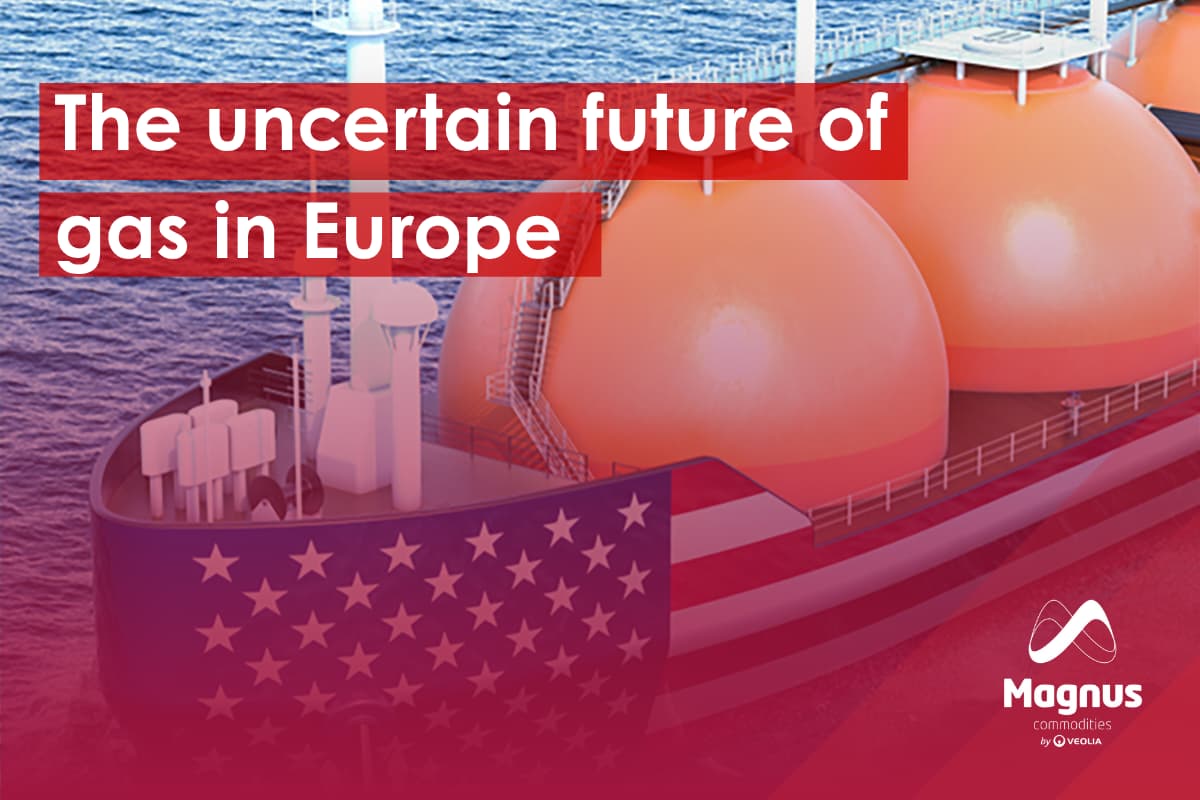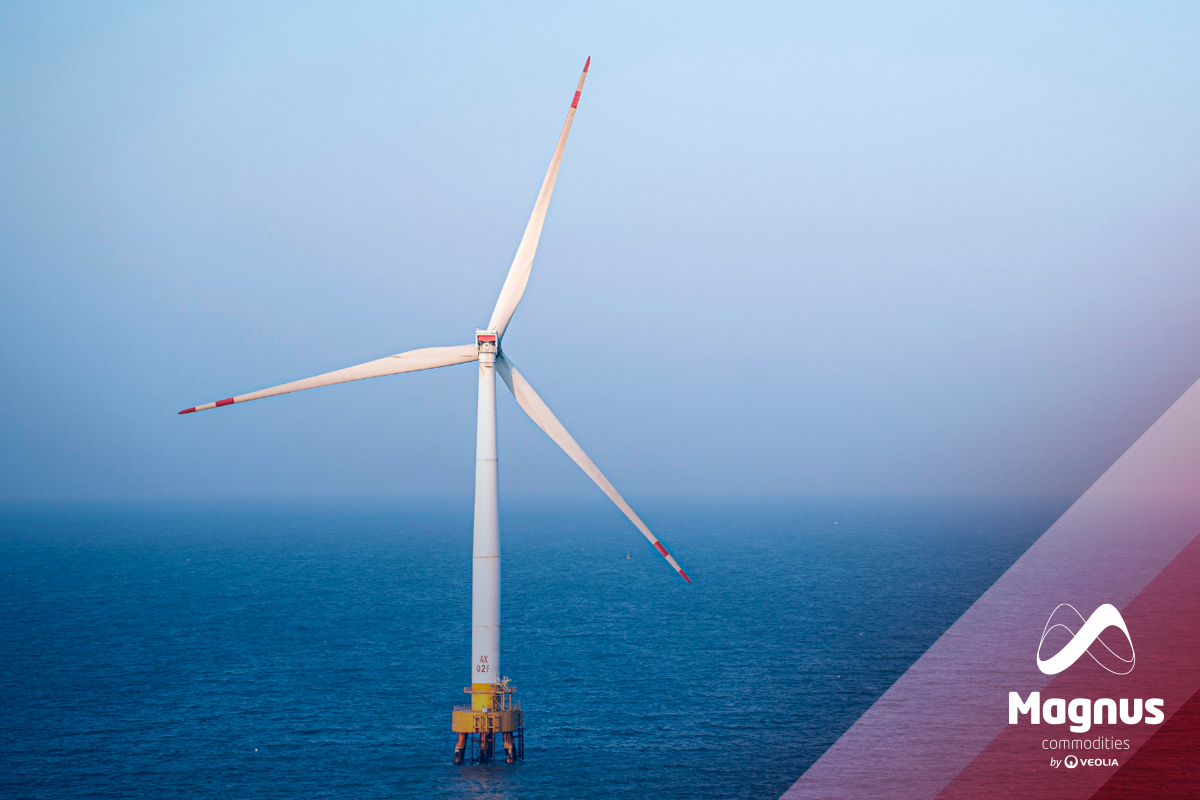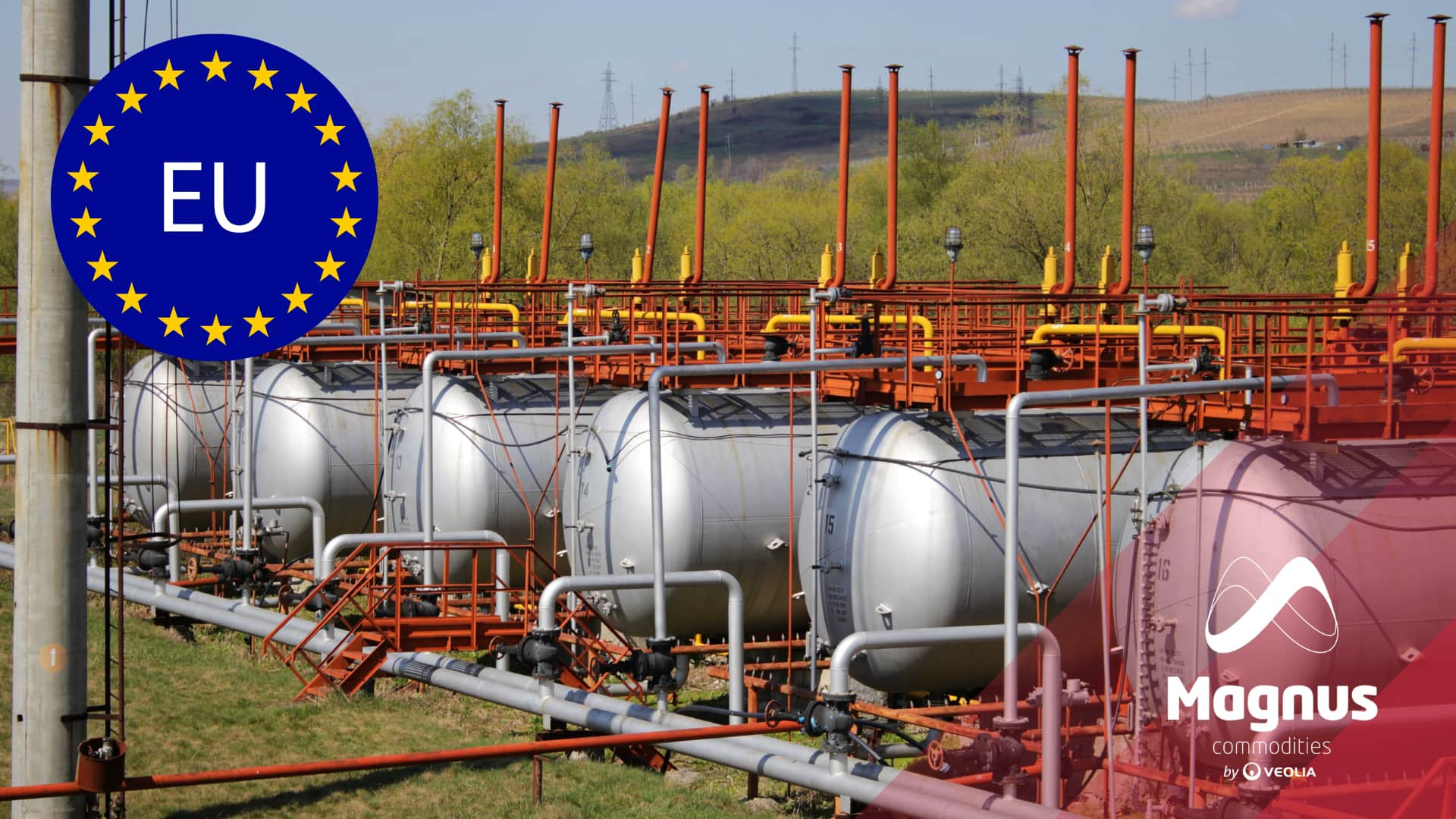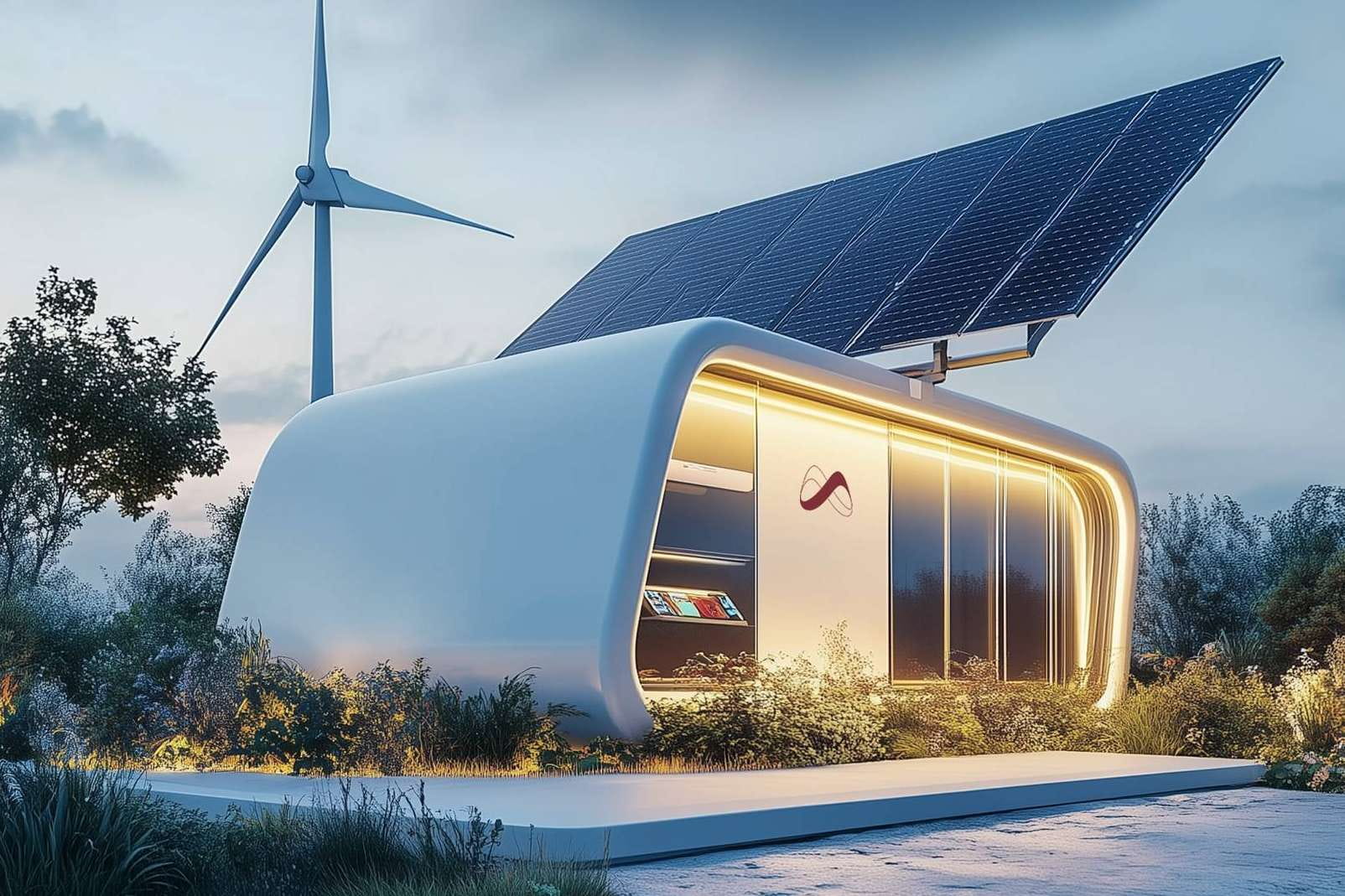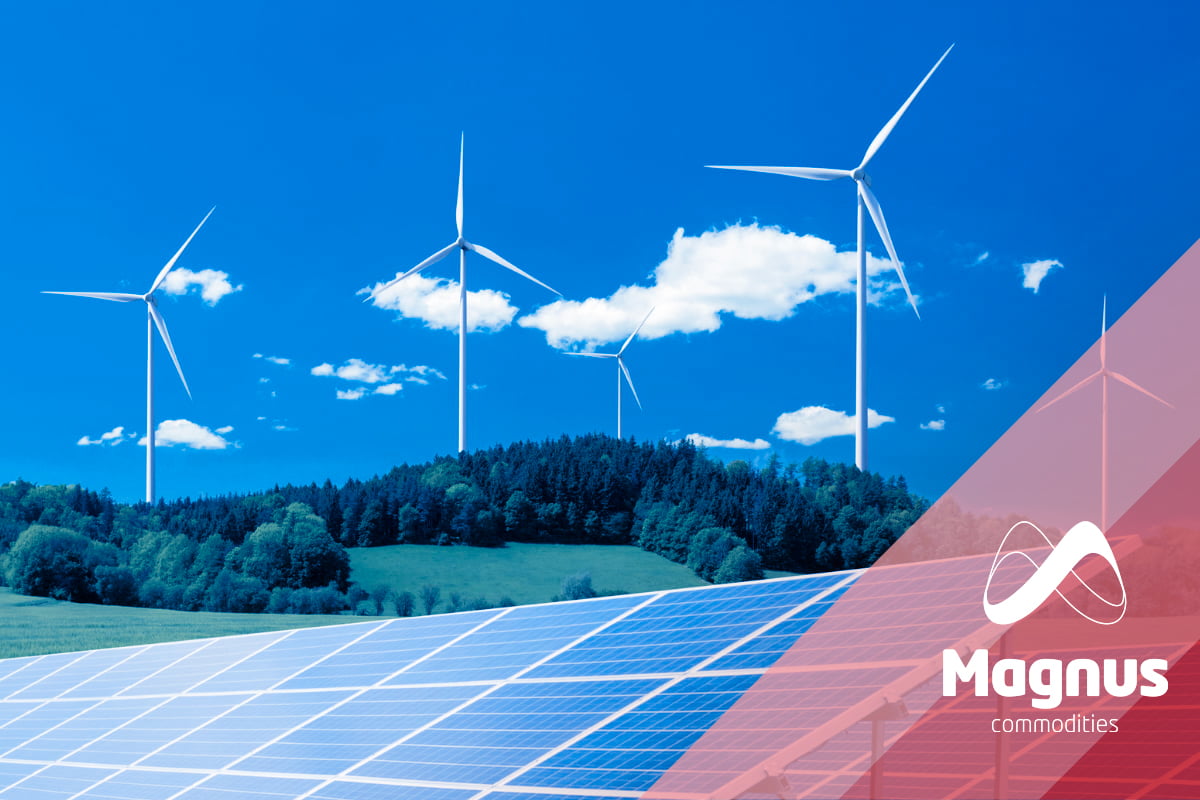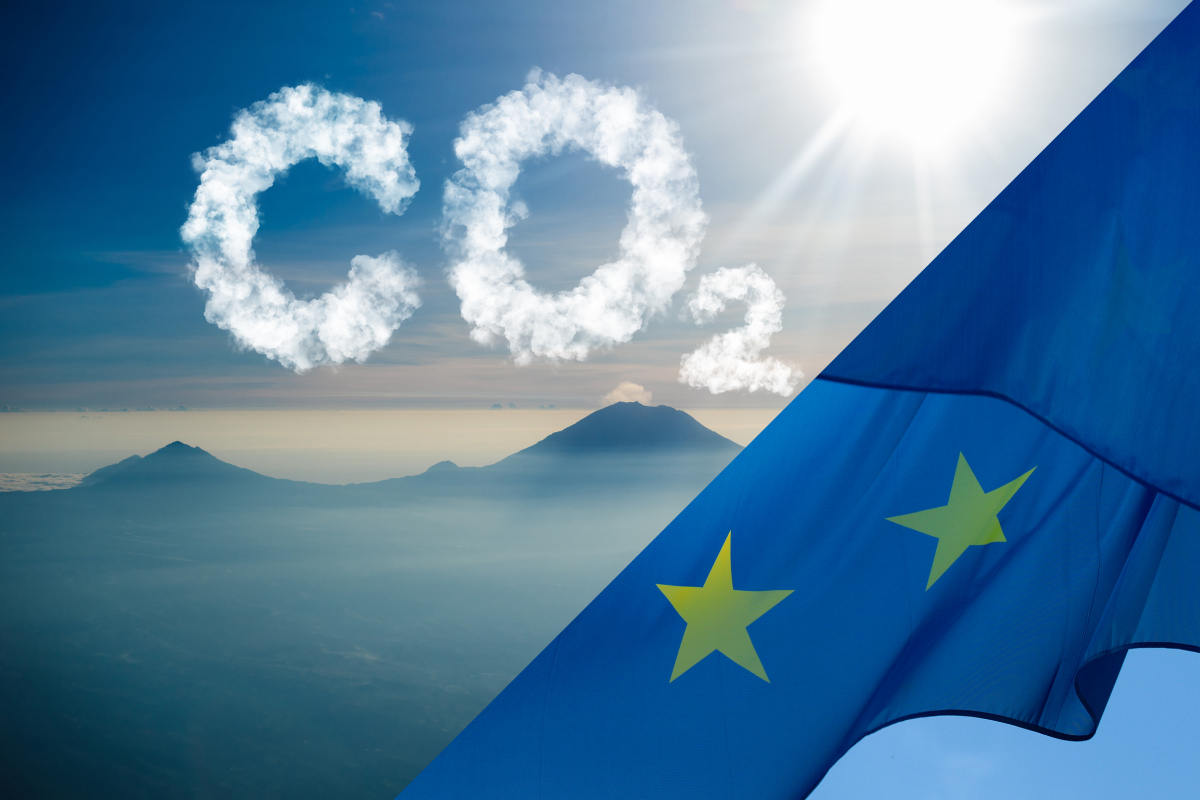
Last October 10 we wrote in an article about the measures presented by the government in Royal Decree Law (The expected energy transition measures have come … Royal Decree-Law 15/2018). Legislation which facilitated further steps to legislative framework of the energy transition. It represented a first step to the challenge of transition that Europe faces.
Since then the Government of Spain, pushed by the signs of the slowdown in the economy, as well as the lack of competitiveness of its industry, has required immediate regulatory action (through a Royal Decree Law) to boost it again.
The Royal Decree-Law 20/2018 (https://www.boe.es/diario_boe/txt.php?id=BOE-A-2018-16791) is not a regulation that affects exclusively the energy sector, it covers aspects such as :
- Replacement contracts for the manufacturing industry
- Update of the sanctioning regime in the industrial field
- Safety regulations for refrigeration installations
- Review of certain aspects of the retail market
- Legislative amendments on the functioning of the food chain
- And, as far as we are concerned, the extraordinary and urgent need derived from the high prices of the electricity bill for the industry, and, for the electro-intensive industries.
For obvious reasons, we will focus on this last point. The Spanish industry must ensure its continuity in a globalized world and therefore it must ensure reasonable energy costs. In the European framework, we continue in the higher part of energy costs in the wholesale markets and we only improve our situation by taxation. We have to continue working on this aspect.
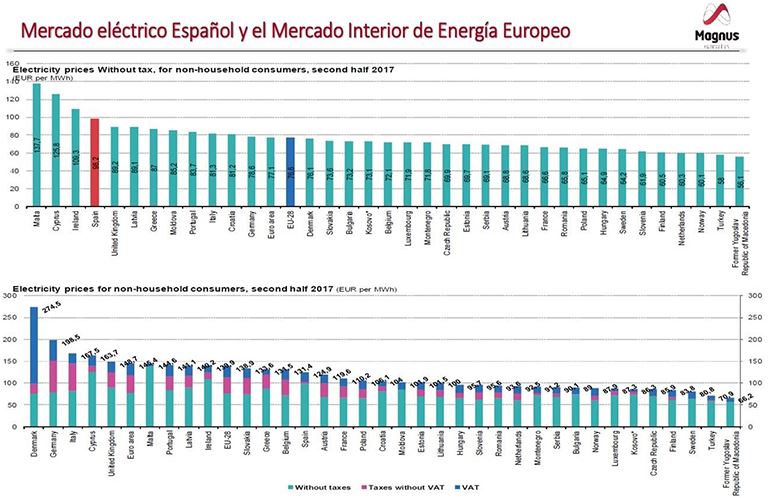
Data: Eurostat 2017
However, regions such as Europe (which imports most of its primary energy sources) have suffered a generalized increase in costs. If we add to this the mechanism of European Emission Trading System, the combination has been fateful for European industry in general. Energy prices in all European countries have skyrocketed.

Data: M-Tech – Magnus Commodities
If we consider the situation of Spain in the two previous scenarios, we can conclude that urgent measures are required to make our industry more competitive and avoid its relocation. The extraordinary and urgent need derives from the high prices of the electricity bill for the industry and for the electro-intensive industries.
With this objective, the RDL establishes specific measures for cogeneration and the electro-intensive industry.
Cogeneration
For a long time, cogeneration has asked the Government to prioritize a new regulation that allows it to continue operating. The sector has asked the new government to “give priority” to the situation of the “hundreds of plants” that await a regulation that “allows industries to carry out and relaunch their activity in the certainty of a new framework.”
The RDL establishes that high-efficiency cogeneration facilities that use renewable fuels or natural gas, and that exceed their regulatory useful life after January 1, 2018, may receive the payment term for the operation for the energy produced from the entry into force of this royal decree-law and up to a maximum period of two years (until an alternative regulation is developed). For their perception, the facilities must continue to comply with the energy efficiency conditions and the other requirements included in the applicable regulations.
In order to continue operating with the current cogeneration facilities, the need to establish new financing mechanisms for the replacement of assets, as well as a framework that enables their operation with a minimum of profitability are considered with the same relevance. The regulations do not specify their mechanisms, but it highlights their need.
Electro-intensive industries
Like the Cogeneration sector, the electro-intensive industry has long claimed that the electricity system in Spain “drowns” industries that have energy as a main part of their costs. Companies demand reasonable regulatory stability that allows them to address global competition without an extra regulation backpack, sometimes inefficient and almost always excessively changing.
This decree contemplates the figure of the electro-intensive consumer and mandates the Executive to elaborate and approve a Statute of Electro-intensive Consumers to define them as such and collect their rights and obligations in relation to their participation in the electricity system and markets. The Royal Decree Law is more a declaration of intentions than concrete measures:
- Directive 2003/54 / EC is repealed and admits the existence of “closed distribution networks“, defined as distribution networks that supply electric power to an industrial, commercial or shared services area. This type of network has been successfully implemented in some countries of the European Union with success and will allow a reduction of economic costs of electricity for the medium and large industry concentrated in small territorial areas. The Government establishes a 6-month horizon for the regulatory development of said figure.
- The Statute of Electro-intensive Consumers is defined. As in the previous point, the Government is given 6 months of time for the approval of said statute in which the peculiarities of electro-intensive consumers will be recognized, it will develop mechanisms for the mitigation of its energy costs, as well as the obligations and commitments that they must assume in energy efficiency, substitution of emitting and polluting energy sources, investment in R + D + i and employment, among others.
- The condition for the beneficiaries of the subsidies for the electro-intensive industry to obtain such compensation is to maintain the productive activity for a minimum period of three years from the date on which the decision granting the aid is issued.
In short, even though they are measures requested by the industrial sectors highly dependent on energy prices, they are still measures that lack clarification. It does not solve doubts, but it opens the hope to find solutions. However, time plays against us. The current energy situation anticipates 2019 of regulatory changes and great uncertainty. Changes for a transition towards a sustainable model are important and the European Union must ensure that this change does not spend an inordinate toll on the competitiveness of its industry.
If you found it interesting, please share it!
Recent Articles







